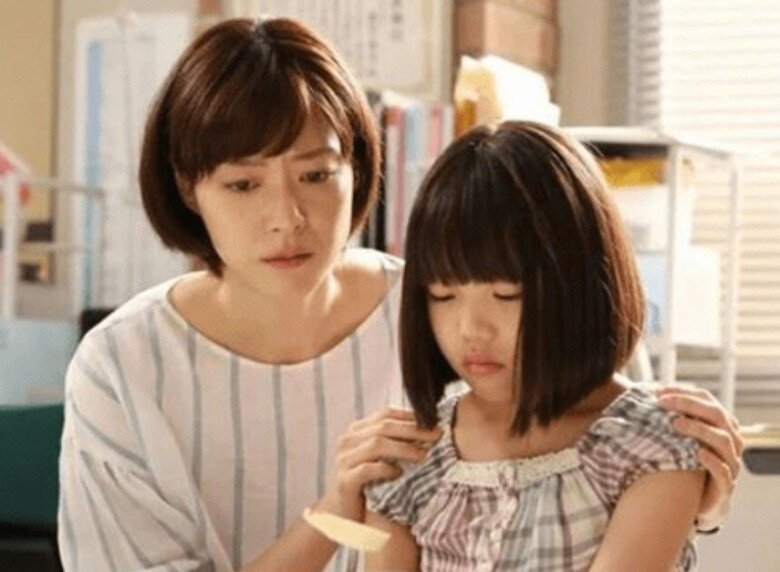Not only my family, but also friends, neighbors, and my child’s teachers have all remarked on how positive and well-behaved my child is, which has always made me incredibly proud and happy. Throughout their school years, my child has been a model student, consistently achieving top grades in their class. They’ve never seemed to break any rules and have even adopted my sense of discipline.

Illustrative image
However, recently, I’ve started to notice something unusual and slightly suspicious. My child began changing their school routine, leaving early but returning home very late. Since the school is quite close to our home and my child is now older, my spouse and I haven’t been picking them up regularly for the past two years.
One day, I happened to see my child return from school wearing their shirt backward, stained, and frayed at the seams. My maternal instincts kicked in, and I knew something was wrong. I immediately confronted my child, and their response left me in shock. I burst into tears and called my husband right away.
It turned out that my daughter was being bullied by a group of classmates who were jealous of her academic success. They had been ganging up on her, subjecting her to schoolyard violence. This had been happening for a few days, but she had only just confessed.

Illustrative image
I was utterly shocked and refused to accept this situation. I immediately called my child’s homeroom teacher to discuss the issue. The next day, my spouse and I took our child to school, demanding that the matter be addressed and resolved promptly and appropriately. If not, I would have no choice but to transfer my child to another school.
Shared by a reader: honghoa…@gmail.com
School violence and bullying are concerns many parents face when their children go to school. Just like adults in the real world, children in school often face disagreements, and they may resort to violence to resolve them, without their parents ever knowing. This behavior is never encouraged.
If these situations cannot be avoided, parents should at least teach their children how to cope and find appropriate solutions.
When you discover your child is being bullied or involved in a fight, parents should:
Stay calm and investigate the cause: Children rarely fight out of malice; it’s usually a spontaneous expression of anger. This is natural because children often lack positive ways to manage emotions and resolve conflicts, such as negotiation, communication, or seeking help. Additionally, it’s instinctive for children to use physical means to solve problems without considering the consequences or others’ feelings.
When informed by the school or teacher that your child has been involved in a fight, take the time to understand the situation before guiding and educating your child. Stay calm, as the cause and consequences are typically minor since children’s fights usually don’t result in severe outcomes.
Talk to your child to understand the issue: Avoid approaching the conversation as if you already know everything. Listen to your child instead of accusing them. The teacher’s conclusion might not always be accurate, as they can’t constantly monitor every interaction. Let your child calmly recount the story, and by maintaining a respectful and composed attitude, the likelihood of them lying is significantly reduced.
Once you’ve gathered the full story from both sides, you can then propose a solution for your child and the issue at hand. If it’s a minor, accidental disagreement, parents don’t need to intervene excessively. Trust that children can resolve such matters on their own. Overinvolvement can hinder their social development and affect their relationships with peers.
If parental intervention is necessary, consider accompanying your child to school early the next day to apologize to the other party if the situation is serious. Otherwise, encourage your child to apologize to their classmate the next day, perhaps by giving them a small gift as a gesture of goodwill.
Teaching children how to defend themselves appropriately:
If the bullying persists and the other party shows clear malice, parents must teach children more practical ways to cope, such as seeking help from teachers. If the teacher cannot stop the bullying, parents should communicate directly with the other child’s parents to protect their child. If necessary, consider changing your child’s school environment.
Additionally, parents should encourage physical fitness in their children. Children who are weak or frail are often more vulnerable to bullying. As children become stronger, they naturally become less likely to be targeted and gain more confidence.
However, using violence to solve problems is not encouraged. Instead, teach children to use their strength for self-defense only. If children view violence as an acceptable solution, they may continue to rely on it, leading to more serious issues later in life.
If your child exhibits violent tendencies, it may be time to reevaluate your parenting methods. Are they frequently exposed to violent content in videos, ads, or real-life conflicts within the family? Parents are their children’s greatest role models, so their behavior significantly influences their children’s tendencies toward violence.







































